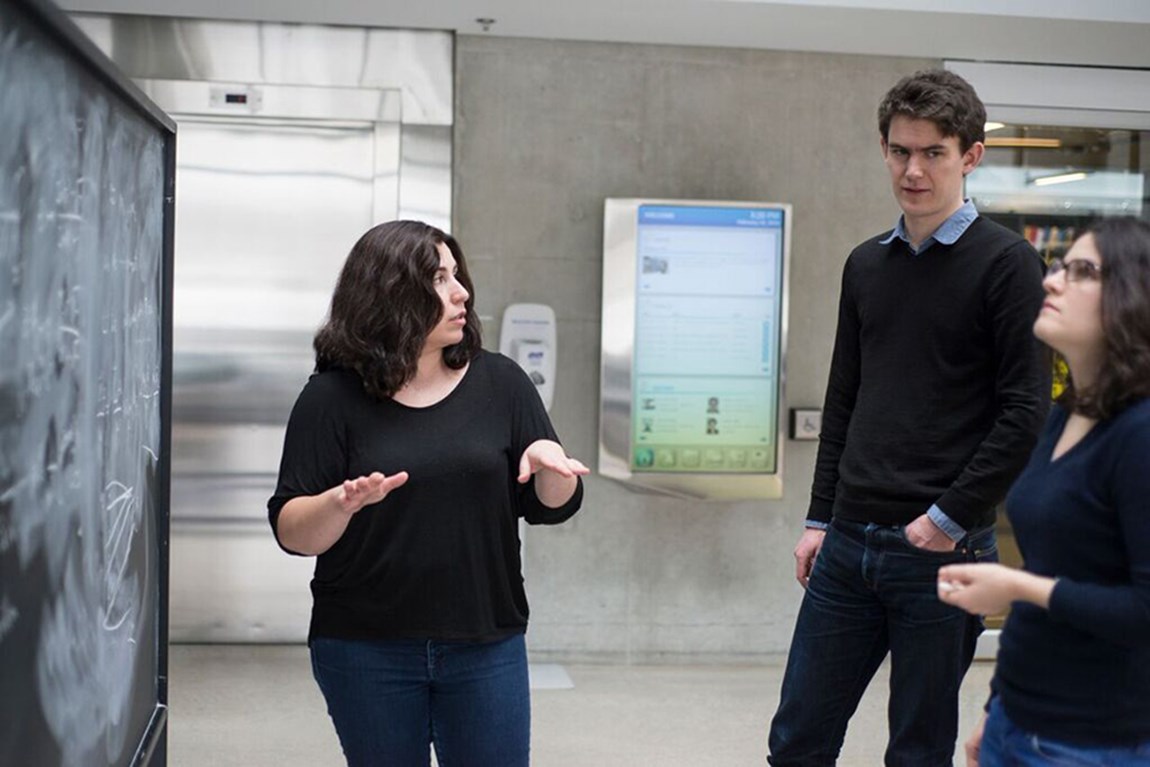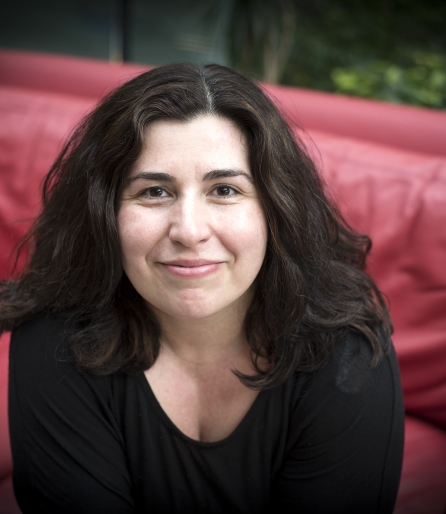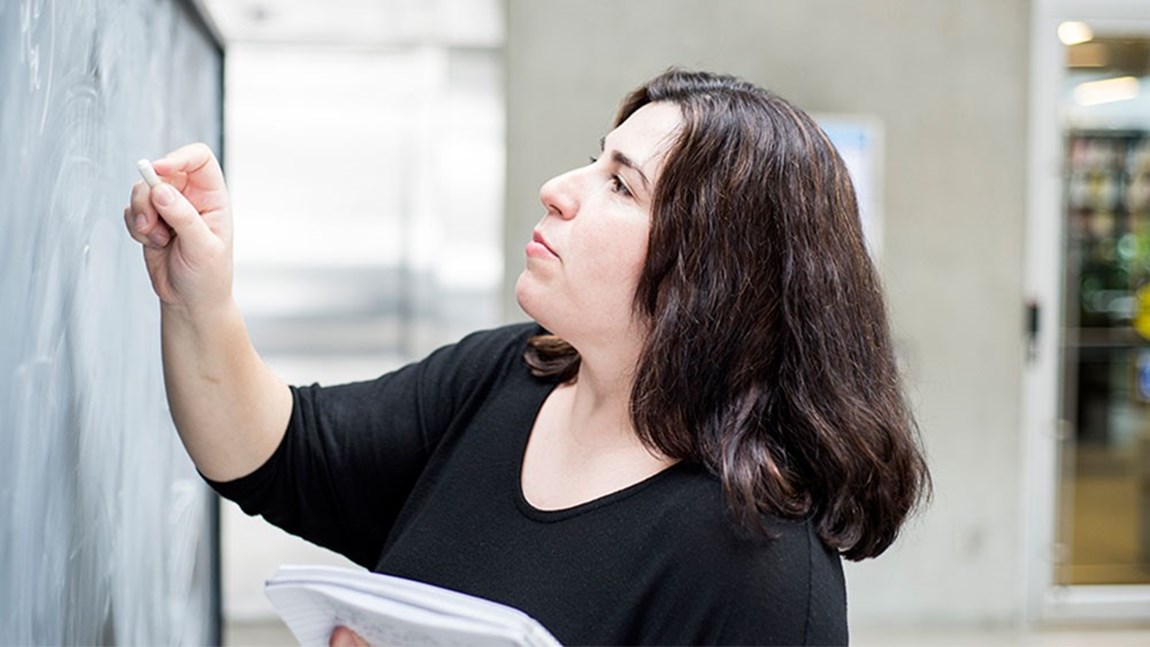
She laughs out loud, talks about her difficult problems in simple words. physics and emphasizes that wherever she is, it is immediately clear that she is Greek. Talk to her Asimina ArvanitakiHead of the Aristarchos Chair of the Stavros Niarchos Foundation at the Perimeter Institute in Canada, flows effortlessly and teaches her interlocutor a lot about the fascinating universe of explorers.
Ms. Arvanitaki is the first woman to hold a research chair at the Perimeter, one of the world’s largest research centers for theoretical physics. Its scientists have contributed to important advances such as the first photograph of a black hole.
Leading Greek physicist “on account” of a number of awards. In 2016, she was awarded the prestigious New Horizons in Physics Prize. This was followed in 2017 by the Giuseppe Sciacca International Science Prize and in 2022 he received the CAP-TRIUMF Vogt medal for contributions to subatomic physics.
The theorist of elementary particle physics, like her exact specialty, studied physics at the National and Kapodistrian University in Athens and soon after that left for the USA and Stanford University, where she defended her doctoral dissertation in 2008.
On the occasion of her important new distinction, she tells K about how she reached the top, what she dreamed of as a child, what life as an explorer is like, and what explains Greece’s many successes in the field of physics. .
The latest award was presented to me by the Canadian Federation of Physicists and is “special” in the sense that it is given to particle physicists. Peer recognition is perhaps the most important of all. It is the moral satisfaction that fills your batteries to move forward. I should note that there are great Greek physicists currently working in the field of research who should have been recognized before me.
Unfortunately, to some extent there is a prejudice against the positive sciences that they require heightened intelligence. But this is a myth that comes from childhood. And although today we do not accept that a child cannot read or write, we continue to say that if he has difficulties with mathematics or physics, then he simply “does not understand.” Having a basic level of understanding and analytical thinking in mathematics and physics is only a matter of teaching.
Analytical thinking is lacking. Which, however, is a necessary tool in today’s era, which “bombards” us with information. Today, more than ever, you need to be able to distinguish between what is reasonable and what is unreasonable, what is right and what is wrong.

I remember that book of my generation that was in elementary school, We and the World. At some point, we were also taught the speed of light. I was thinking about how much happens in the 8 minutes it takes for sunlight to reach the earth. This realization that everything we see, everything we encounter is his past impressed me. I was horrified that “at the same time” does not exist. And although I studied well in all subjects, this passion for physics continued. Before university exams, I was torn between mathematics and physics. In the end, I was more interested in the question “why is it the way it is” than “how are we going to make it work”.
Ever since school, I told my parents, teachers – my father is a mathematician, my mother is a philologist, that I want to study abroad. Since then, I knew that there would not be many opportunities in Greece. And it’s really, to a large extent, a question of opportunity.. Fortunately, my parents protected me from all the stereotypes that already existed then, and even more so in the village, which was a small society. I still remember going to the local flea market with my dad shortly before leaving for Stanford. My father told the news to a fellow villager, and he asked me:But won’t you stay here to get married?. In 2002 it is. But even now, when I come to Greece, taxi drivers often ask me:But you won’t go back to Greece?”
I have been living away from Greece for 20 years now. For a young man who has big dreams in our field, I would advise him to leave if he wants to. Because there are no research resources in Greece. I went to Stanford not so much because of its reputation, but because I could get my PhD without asking my parents for money. Independence for the researcher is very important. But it is also important that good funding will raise the level of your research. A week ago, Canada’s Minister of Development announced that it was giving Perimeter $350 million to research into artificial intelligence and quantum technologies. Could something similar happen in Greece? On the other hand, studying and working abroad is a purely personal choice. I made the decision to continue doing my job exactly the same as I do now.
I belong to a generation where a woman can’t help but hear something sexist in her life. At the Greek university, I heard a lot of derogatory comments about my fellow students. Indeed, until 1998 there were as many women physicists as men. Two years later, out of 30 graduate students at Stanford, there were only three of us women. It took some time for everything to change. Personally, the higher I moved up in the hierarchy, the more acutely I saw the problem.. For example, I collaborated on something with my Stanford professor Savva Dimopoulos, and I know some people thought he did all the work, not me. It’s much easier for them to think that when you’re a woman. This is the subconscious mindset. The situation is definitely improving and we have to say it. My current graduate student will face a much better environment than the one I faced at the same age.

Difficult answer. There are many questions that we don’t even know if we can experiment. Most of them are related to the theory of quantum mechanics and the theory of gravity. Can these two get along somehow? Where do these 95% of the matter of the Universe come from, which we do not know and only “saw” with the help of gravity? Most people have heard of the Big Bang, and fewer people have heard of the Cosmic Microwave Background, the cosmic radiation that was caused by the Big Bang. Now we have telescopes that observe this radiation. I’m dealing with the Big Bang neutrinos that were created when the universe was one second – today it’s 10 billion years old. What I want is a picture of the universe when it was second old. Like James Webb, but with different particles.
First, I don’t have social media at all. I do it out of conviction. They take a lot of time, and I also don’t feel the need to flaunt myself. Too much information easily becomes noise. And, of course, I don’t have a schedule and can’t have one. For me, my work is a part of me. If I’m not happy with my job, I’m not happy in general. Ideally. What researchers do is a labor of love, not a job. The public is still largely outdated about our work. They imagine us in white clothes, isolated over a microscope, we suddenly have a brilliant idea, as happened to Newton, who, locked up in his house for three months due to a plague, came up with a precious theory of gravity. Although we are not all Newtonians, this mind was a phenomenon. Fortunately for us, cooperation between researchers is now established.
The best feeling in the world. Especially when you realize that what you understood, no one else understood. Why actually what happens is that most of the time i am confused. As do all researchers. Out of 100 things you do, one will work.

Greek physicists are pioneers in our field, especially for such a small country as we are. Except my teacher Savva DimopoulosI will mention it Giannis Iliopoulos in Paris. The latter made a discovery that is now used as a law of physics. In my opinion, he should have received the Nobel Prize. He’s still dean of physics at Harvard, Efthymyos Kashiras and Leah Ant, director of Fermilab. From my “bakery” too Eleni Katifori, professor at the University of Pennsylvania. This is because something is done well in basic Greek education. Despite the problems, in Greece books/materials and exams are common between public and private sector students. Public education is expanding. This is a basic principle of justice that we often underestimate.. In many foreign countries, and especially in America, the inequality is very great.
My relatives, the weather. We are a very beautiful country and it is hard to forget. Wherever I am, it always happens to everyone it is quite obvious that I am Greek. However, my main theory is: “where is the land and the country”. I consider myself a citizen of the world.
Source: Kathimerini
Ashley Bailey is a talented author and journalist known for her writing on trending topics. Currently working at 247 news reel, she brings readers fresh perspectives on current issues. With her well-researched and thought-provoking articles, she captures the zeitgeist and stays ahead of the latest trends. Ashley’s writing is a must-read for anyone interested in staying up-to-date with the latest developments.